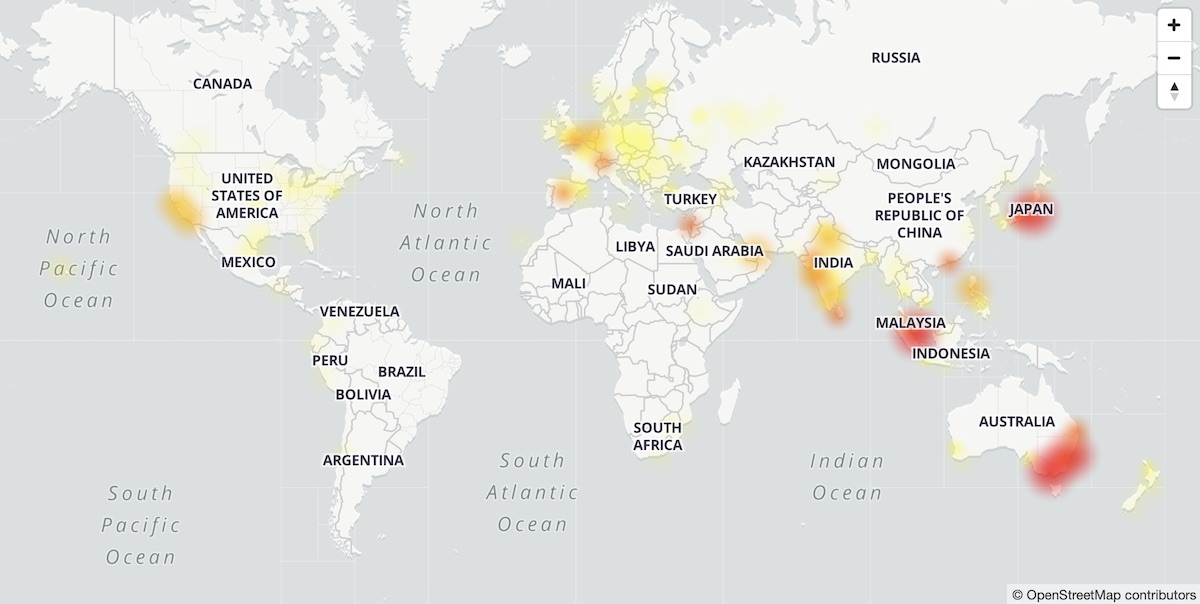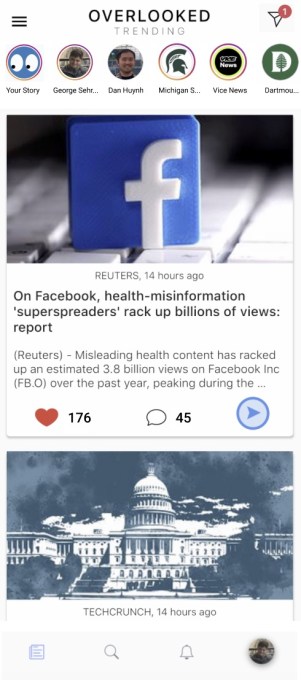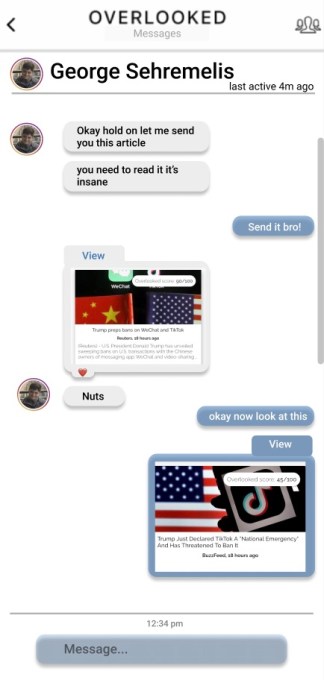In discussions of ethically dubious social networks Facebook is the usual reference choice. But spare a thought for subscribers of InterNations, a Munich-based social networking community for expats, who have found themselves unable to obtain refunds for full-year payments charged in the middle of the coronavirus crisis.
InterNations has operated an expat networking experience since 2007, offering a free ‘Basic’ tier of membership that gives users some access to site content and community-organized events (if they pay an entry fee); or a premium tier which requires shelling out for a year’s subscription up front to get free/reduced price entry to networking events, plus access to some additional site features.
The German company appears to be a fan of nominative determinism — having named the subscription tier of membership ‘Albatross‘, given how difficult it is for users to exit once they upgrade from Basic to paying, perpetually renewing contract.
Several former members told us their memberships were auto-renewed for a full year without any warning in the middle of the pandemic. When they contacted InterNations to request a refund they were point-blank refused — with the company saying they were bound by the terms of the contract they’d entered into when they paid to upgrade the year before.
In emails we’ve reviewed between users and InterNations’ staff the company repeatedly ignores requests for refunds.
One UK-based user, who told us she had signed up to use the service to attend networking events in London and Paris, where she travelled regularly for work, found herself put on furlough in March when the UK went into lockdown. She only noticed the InterNations subscription had autorenewed when she saw a charge as she was checking her bank statement.
She contacted InterNations to request a refund — pointing out there were now no physical events near her, nor would she be able to attend in-person networking events for the foreseeable future due to shielding as a result of personal vulnerability to the health risk posed by COVID-19. But InterNations still refused to refund her subscription.
Instead it offered to put the year’s ‘Albatross’ membership on hold until 2022 — suggesting she might be able to make use of the services she’d just been billed for in two years’ time.
“Many of the people complaining feel aggrieved by InterNation because the entire event offering is very much voluntary and community based. It relies on people stepping forward to organise groups of people to attend events, walks, screening etc. Most of them do not make financial gain out of it,” she told us.
“So for this organisation not to be looking after its very own community feels like a slap on our faces.”
“My local gym froze my membership from April 2020 without any of its members having to request it. They informed us by email, they would do this. I was able to cancel in July without any question asked,” she added. “If my small gym is able to do this, how come InterNations is not stopping the auto-renewal of the membership at such a time?
“When everyone almost worldwide is worrying about their health, their livelihood, their relatives, we are not remembering to cancel or to stop memberships.”
Another user, who signed up to the service after moving from the US to Singapore, told us he was sent repeated payment demands in the middle of the coronavirus crisis after his on-file credit card had expired — which meant InterNations couldn’t auto collect his payment.
He told it he wanted to cancel the subscription but it told him he would only able to delete his account if he paid up for a full second year. Eventually he said he felt he had no choice but to pay the demand for around $100 in order that he could downgrade from ‘Albatross’ to ‘Basic’ and have his account deleted.
“I was (and still am) a paid subscriber and during the height of the pandemic I never received an offer of ‘free months’ of membership,” he said. “Instead, all I got was a deluge of threatening emails about how they couldn’t process my credit card information. Nothing even remotely about whether I was sick or even still alive. They just wanted my credit card details.”
A third user, who signed up for the service after moving to Hanoi, summed up her experience as “not the best”. She pointed us to a blog post in which she recounts a similar story — finding herself charged for a renewal in the middle of the coronavirus without any advance warning and having forgotten to cancel the subscription herself.
“I didn’t realise I’d been charged until a notification from PayPal arrived in my inbox,” she writes. “Say, what? Where was the email reminder? Where was the ‘now due’ invoice that is the hallmark of good business? Turns out InterNations don’t send them.”
This user was finally able to obtain a refund — but only via disputing the charge through PayPal. She got no joy asking for her money back from InterNations itself.
A deluge of similar complaints about the company can be seen on Trustpilot — where InterNations has an 81% ‘bad’ rating at the time of writing.
“An annual membership was taken from my account, and refund was refused. A year on and I am being threatened with non payment of a new invoice,” writes one reviewer.
“I cancelled my membership the past two years and every year it shows that I didn’t and their records conveniently show no record of my cancellation. Then they will refuse refunds,” recounts another.
“InterNations contacted me via automated email about my membership payment being due. When I responded, asking to cancel membership since I haven’t logged in in months and can’t afford membership during these times, they refused to help,” says another irate reviewer. “They make it impossible to do this simple task. They’re greedily unable to help with anything other than take your money. No empathy. All they have to do is cancel the membership.”
“They don’t even send a reminder for end of membership. Some people have seen their credit card debited, without any reminder. And if your credit card you registered has expired, they keep harassing you and threaten you,” runs another despairing former user.
In emails to users who are requesting a refund which we’ve seen InterNations simply points them to German law — which does appear to be the legal sticking point here. As a number of expat blogs warn, service contracts in Germany can be a lot harder to get out of than into.
Though, of course, it’s unlikely to have been immediately clear to people signing up to a global social network in cities like Hanoi and Singapore that they needed to understand German contract law before hitting ‘subscribe’.
BEUC, the European consumer rights group, told us there’s no pan-EU requirement for a notification to be actively sent to users ahead of an auto-renewal of a services contract — and the lack of such a notification ahead of the InterNations subscription renewal is one of the key recurring complaints.
“EU law only requires the consumer to be informed of the final price and the contractual conditions,” a spokesperson said, noting that consumer rights can vary substantially from member state to member state as the area isn’t harmonised at EU level.
So, while BEUC noted that, for example, Belgium law does have a specific provision which allows the consumer to terminate a contract at no cost after its tacit renewal — Germany, self evidently, does not. Although domestic pressure appears to be growing for reform of its one-sided contract rules.
When we put the various complaints we’d heard about refunds and cancelations (and indeed dark patterns) to InterNations, its founder and co-CEO, Malte Zeeck, said the company does not breach consumer law — and further claimed it “clearly communicates” subscription renewals to users.
“InterNations is operating on a standard subscription model like many other businesses, which is at no point in breach of consumer protection laws,” he said. “Subscriptions are renewed automatically, which is clearly communicated at the beginning of each subscription period, in each invoice, and in every user’s membership and account settings. This is also where a subscription can be cancelled at any time, without a notice period that has to be observed.
“Our members have a continual visual reminder of their membership status through the Albatross symbol found on their profile picture. They can also always see their current membership status by visiting their membership page.”
And while he conceded that InterNations had had to cancel in-person events “during the height of the pandemic” he said it substituted this reduction in service by offering “additional free months of membership” and “working very hard to respond to the situation and find ways for our members to still meet and spend time together online”.
“After only a few weeks, we already offered over 500 online activities worldwide to help expats and global minds connect and share experiences — more online events were being added every day,” he added. “In addition, our users continued to benefit from other online networking and information features our premium membership offers. Since restrictions on in-person events are being lifted around the world, we have started to offer many opportunities for our members again to meet in person.”
EU consumer protection rules do bake in requirements that contract terms be fair — with provisions intended to protect against things like one-sided changes to a service without a valid reason. But it’s pretty clear that InterNations could argue a pandemic is a valid reason for canceling in person events and replacing them with online networking. So angry users are unlikely to find much solace there.
Still, maintaining such an inflexible and user hostile attitude during a pandemic does look risky for InterNations and its reputation, given new users are likely to be far less easy for it to net now the coronavirus has settled like a dead calm on so much foreign travel.
So while it might be legally entitled to sit and claw in revenue from people who — living through a pandemic and worried about things like their jobs, health and loved ones — forgot to cancel a subscription that only comes round once a year, it’s hardly a recipe for long-term customer loyalty.
Indeed, we’ve seen these kind of auto-renewing subscription gigs crop up in the ecommerce space in years past. And none of those dubious tactics went the distance.
Tricking consumers into recurring payments is never a good long term business strategy and it certainly isn’t now that reputational damage can scale all over social media in seconds. (To wit: Irate InterNations users have been organizing via Twitter and have set up a website to amplify negative reviews where they urge people to boycott the service.)
None of the people who’ve been stung by InterNations’ auto-renewing subscription are likely to forget to cancel a second time so won’t be a source of recurring revenue in future. And treating users like so much chum when the company also relies upon their community spirit to power its service looks like a rotten business model long past its sell-by-date. (However many members InterNations claims have contacted it “to say how much our online events have helped them to stay in touch with people and also stay positive during a period of self-isolation”, a minority of satisfied customers are being drowned out by all the angry online views.)
In the meanwhile, it’s certainly curious to encounter a niche social network that’s happy operating with as little regard for users’ wishes as some of the far more maligned giants of the category. To the point where its website displays information regarding the European Commission’s “online dispute resolution” platform in small print right on the contacts page. Er, perhaps Facebook should take note.
On unhappy users, Zeeck only had this to say: “We are sorry that some of our former members perceive this differently and were not happy with the benefits our membership offered them. We are always taking our users’ feedback seriously and are working hard to provide a great experience for them. At the same time, we are aware that it is hard to have the perfect solution for everybody, and there will always be detractors.”
But perhaps he’s been taking cues from Mark Zuckerberg’s neverending apology tours.
Read Full Article






